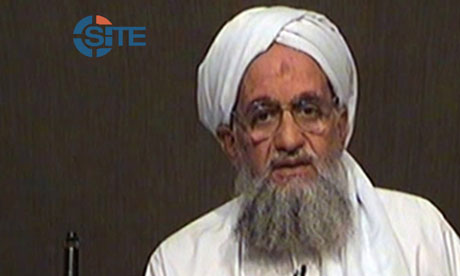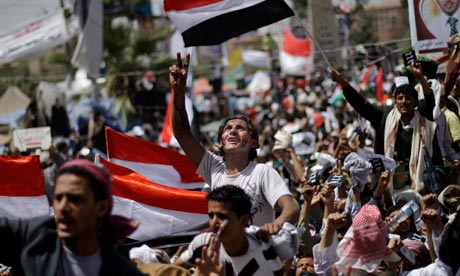Isaiah Esipisu
5 October 2011
Dadaab — When Aisha Diis* and her five children fled their home in
Somalia seeking aid from the famine devastating the region, she could
not have known the dangers of the journey, or even fathom that she would
be raped along the way.
Diis left her village of Kismayu, southwest of the Somali capital of
Mogadishu, for the Dadaab refugee camp in Kenya's North Eastern Province
in April.
"I was in a group of many women and children, but four of us had come
from the same village, hence, we related (to each other) as one family.
Along the way, we stopped to make some strong tea since the children
were feeling very tired and hungry. One woman remained behind with the
children and the three of us went to search for firewood," Diis told IPS
through a translator.
"We were ambushed by a group of five men who stripped us naked and
raped us repeatedly," she said as tears rolled down her cheeks. "It is
something I have not been able to forget. But I wouldn't like my
children to know about it."
But the trauma Diis and the other two women had to undergo is not an isolated incident.
As hundreds of tired, weak and malnourished women and children stream
into Dadaab from famine-hit Somalia daily, the journey, for many of the
women, would have been a harrowing one.
Tired and dusty, most women carry their babies tied to their backs.
For many this precious cargo is the only possession they have managed to
save from their homes in Somalia. Some, however, are slightly more
fortunate and come with their children and what few belongings they have
packed onto donkey carts.
They rarely talk about what has happened to them on the way here, when they arrive.
Instead, most register as refugees and undergo medical screening with
their children. Then they are allocated a tent and basic household
equipment.
The tents have no lockable doors, no windows, and no furniture, not
even a bed. But all the same this is a place that the refugees can call
home - for now, and perhaps for many years to come. (Some of the
refugees were born here in 1991 when the camp was first established, and
have not known any other home.)
But even after the women have settled in, many do not come forward to
speak about the violence they experienced on their way to the camp.
"Gender-based violence is a hidden side of the famine crisis," said
Sinead Murray, the gender-based violence (GBV) programme manager for the
International Rescue Committee (IRC) at Dadaab.
"As per the rapid assessment done on GBV in Dadaab released by the
IRC in July, rape and sexual violence were mentioned as the most
pressing concerns for women and girls while fleeing Somalia and as an
ongoing, though lesser concern, in the camps," Murray told IPS.
"Some women interviewed during (the IRC) survey said they witnessed
women and girls being raped in front of their husbands and parents, at
the insistence of perpetrators described as 'men with guns.' Others were
forced to strip down naked, and in the event they were raped by
multiple perpetrators," said Murray.
But Diis, and the two women who were raped with her, are some of the
few Somali women who reported the violence they have been subjected to
on their journey to Dadaab. In Diis' case, she was brave enough to do so
because she is a widow, and does not fear recrimination from her family
as other women do.
"I did not fear to disclose my case to the medical officer because I
did not have a husband," said the widow whose husband was gunned down in
Somalia by unknown assailants seven months ago.
"Many women are assaulted on their way to the refugee camp by unknown
armed men, especially when travelling in a group without men," said Ann
Burton, a senior public health officer at the United Nations Refugee
Agency (UNHCR) at Dadaab.
"However, most of them are reluctant to report such cases since they
fear that their families will blame them, communities will reject them
or simply because they feel ashamed to talk about it."
Diis was given post exposure prophylaxis, a short-term antiretroviral
treatment used to reduce the likelihood of HIV infection, after she
reported her rape.
"After I reported my case I was given some medicine, and I was
monitored for three months after which I was informed that I had not
contracted HIV. That was one of my biggest concerns," said Diis. She
also received counselling.
The other two women who were raped with Diis were also counselled and received post exposure prophylaxis.
Diis said that she is aware of other women who were raped before
their immediate family members and did not report it to the medical
staff at the camp.
Not reporting the rape just adds to the suffering of the women.
Burton said: "Survivors often do not get critical life-saving care
because of keeping it a secret."
So far, only 30 cases of rape were reported between January and July
2011 according to the UNHCR at Dadaab. But medical experts at the camp
say that this is a small fraction of a huge problem faced by women.
Once they arrive at Dadaab some women continue to experience
gender-based violence from their intimate partners. Murray said this
includes early marriages and survival sex - where women are forced to
exchange sex for access to basic needs.
Though such GBV incidents are said to be less frequent within the
camps, some women told IPS that they feel insecure and scared at night
while sleeping in the makeshift shelters.
"The camps do not have fences and at the same time we are not able to
lock our shelters throughout the night. Anything can happen in the dark
hours," said Amina Muhammad who lives in Dadaab.
The biggest risk at the camp, according to the women IPS spoke to, is when they travel long distances in search of firewood.
*Not her real name
 Reddit
Reddit











